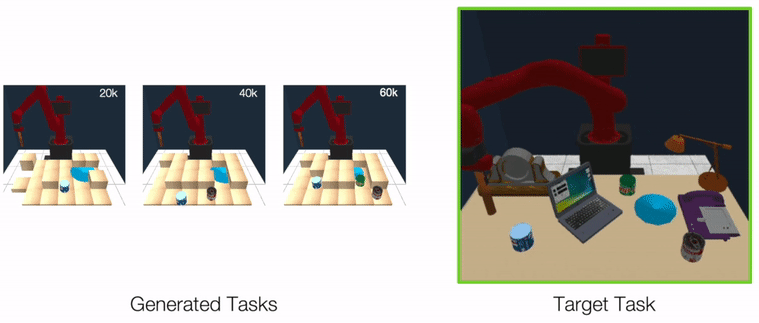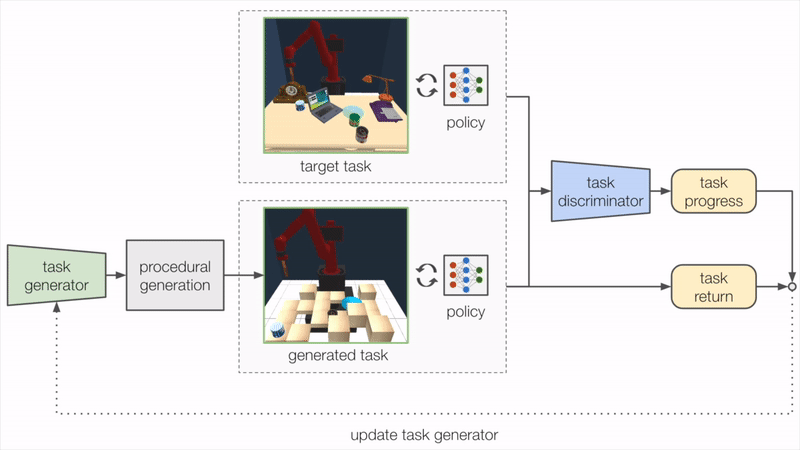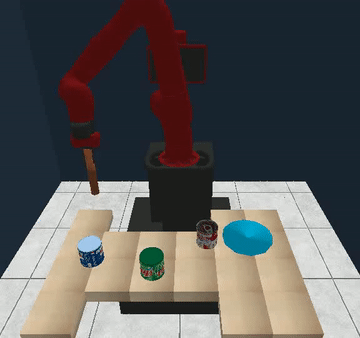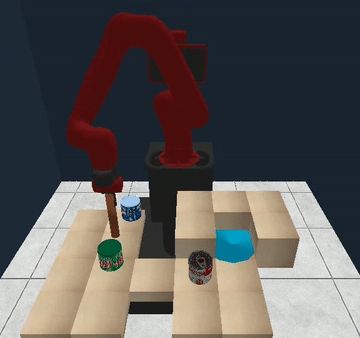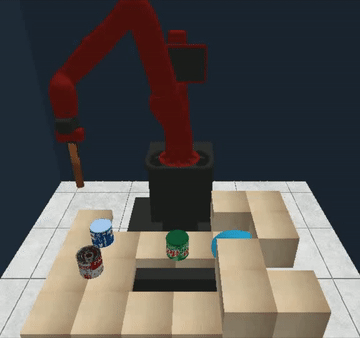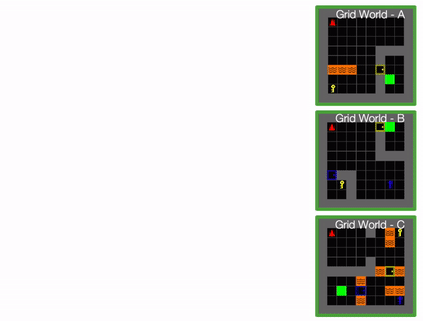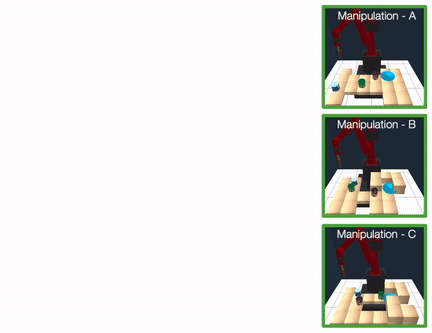Out-of-Space Task
APT-Gen can be applied to target tasks that are outside of the parameterized task space predefined by the procedural generation module. To facilitate reinforcement learning in this challenging target task, APT-Gen progressively generates tasks that approximate complicated objects using elements provided by the procedural generation module.
